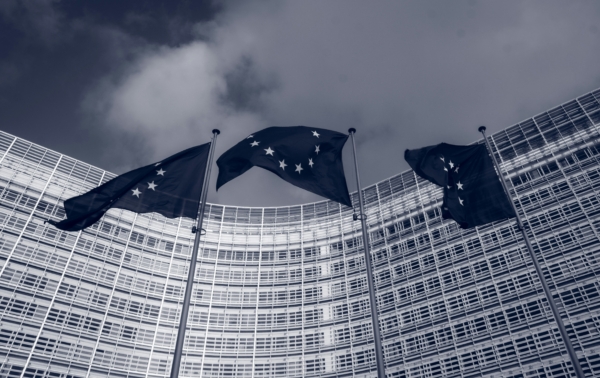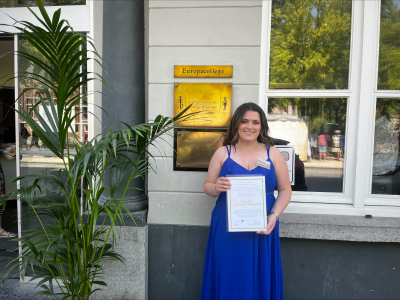Next week, the European Court of Justice (CJEU) will decide on a case that could finally address problematic shortcuts to EU citizenship: the European Commission has brought Malta to court over its ‘golden passport’ scheme. This is the nickname given to Citizenship-by-Investment (CBI) schemes, which offer fast-track citizenship status to third-country, wealthy individuals in exchange for large investments. These schemes usually require little physical residency in the country prior to gaining citizenship. Effectively, this means anyone can get EU citizenship—provided they can afford it.
The schemes (or similar residency-by-investment schemes, also known as ‘golden visas’, or RBIs) were introduced by several Member States as a response to the financial crisis, in the hope of pushing economic growth. But the EU has viewed them with increasing scepticism, and the European Parliament has called for their discontinuance. This is because these schemes tend to tout the EU’s freedoms as their selling point, particularly freedom of movement and capital. EU citizenship also grants individuals the right to vote and stand as a candidate in local and EU elections, and to travel visa-free to other countries. Selling access to freedom of movement to a privileged few bears a host of corruption, money laundering and security risks, as well as risks of tax avoidance. It also increases pressure on the real estate sector, thereby diminishing access to housing in some Member States.
It is entirely conceivable that a third-country national would seek EU citizenship for illegitimate reasons, such as evading law enforcement investigation, prosecution in their home country, or protecting their assets from the related freezing and confiscation measures. In fact, reports show that investors spend little time in their targeted country before obtaining citizenship, merely using the country as an entryway to the EU, or as a plan B should they feel compelled to move their capital or family from their country. Last year, it was revealed that a young Russian man had been sentenced to five years in jail for running a money laundering service as part of an international network linked to organised crime. Investigative journalists found that he simultaneously held citizenship from Malta. He was able to acquire the passport, along with his father, in 2022 in exchange for an investment. Following his conviction in the United Kingdom, Malta has reportedly initiated the process of revoking his passport. This underscores how CBI schemes can attract individuals seeking to legitimise themselves while concealing criminal activities.
The European Union’s adoption of the 6th Anti-Money Laundering Directive (AMLD6) now requires applicants to RBI schemes to go through an enhanced due diligence process. But this is far from enough—and the Directive must still be transposed into national law by the EU Member States.
This brings us to Malta. The European Union’s smallest Member State has had a golden passport scheme since 2013, allowing 96 individuals to gain Maltese citizenship by making significant economic contributions. Would-be Maltese are required to purchase property, invest in government-approved financial instruments and make a donation of €10,000 to a registered philanthropic, cultural, sports, scientific, animal welfare or artistic NGO or society in exchange for citizenship.
The scheme led the European Commission to open an infringement procedure against Malta in 2020, where it argued that granting EU citizenship in exchange for pre-determined payments or investments without requiring any genuine link to the Member State concerned undermined both the concept of EU citizenship (Article 20 TFEU) and the principle of sincere cooperation (Article 4(3) TEU), which requires Member States to facilitate the achievement of the Union’s tasks and refrain from acts which could jeopardise the attainment of the Union’s objectives. This is because the establishment and the operation of such schemes has risks which are borne by the EU in its entirety, while the (financial) benefits only pertain to one Member State.
Following Russia’s invasion of Ukraine, the Commission issued a recommendation urging Member States to repeal CBI programs and Malta decided to suspend its CBI scheme for both Russian and Belarusian nationals. However, the scheme continued to be available for all other nationalities. According to reporting, the scheme has gone from generating 1 million euros for Malta in 2017, to a projected 25 million in 2024.
Malta’s refusal to completely band and end CBI schemes led the Commission to send a reasoned opinion—the last step of the infringement procedure—to Malta in 2022, outlining its concerns with the scheme. However, according to the Commission, Malta has failed to address these, leading to the case being referred to the CJEU in 2023.
The question at the heart of this case is whether EU law constrains Malta, in as far as the granting of Maltese (and, by extension, EU) citizenship is concerned. The Commission is of the opinion that Union law precludes schemes like the Maltese one in the absence of a ‘genuine link’ between the Member State and the individuals concerned. Malta defended the scheme by asserting its sovereign right to determine citizenship criteria, while further pointing out that EU law does not require the existence of such a ’genuine link’ for establishing nationality.
On 4 October 2024, the Court’s Advocate General delivered his opinion on the case, which dismissed the Commission’s arguments, stating that while a Member State may require proof of a genuine link, “EU law does not define, much less require, the existence of such a link in order to acquire or to retain that nationality.”
The arguments above, then, focus on the conflict between Maltese and EU law. Yet none of them consider the significance of the case to the Member States, and ultimately the EU, from an anti-money laundering, corruption, or other financial risk perspective. An analysis by the Daphne Caruana Galizia Foundation in fact shows how intermediaries and facilitators involved in the promotion of these schemes, coupled with an opaque relationship between the public and private sectors, significantly increase the risk of corruption, especially in the real estate sector, which is “one of the oldest known ways to launder ill-gotten gains”. It has been widely reported that former Maltese Prime Minister Joseph Muscat was engaged as a consultant to one company that provides both financial investment and real estate services for passport and residency visa schemes. Similarly, William Wait, a member of the Evaluation and Adjudication Committee (EAC), reportedly held conflicting roles in over a dozen private companies.
The CJEU will pass a judgement on the case on 29 April 2025, and the consequences may be wide-ranging. A ruling in favour of Malta could encourage other Member states to adopt—or readopt—similar programs. In fact, Hungary decided to reintroduce its RBI scheme in July 2024, having previously ended it in 2017. A ruling in the Commission’s favour would set an important precedent for ending the abuse of CBI schemes in the EU by high-risk individuals.
Regardless of the outcome, this case has demonstrated a controversy inherent in the acquisition of EU citizenship and will likely lead to increased scrutiny. The key challenge will be whether the judgement can clarify the extent to which Member States may unilaterally grant EU citizenship through national schemes without undermining the integrity of EU law.







